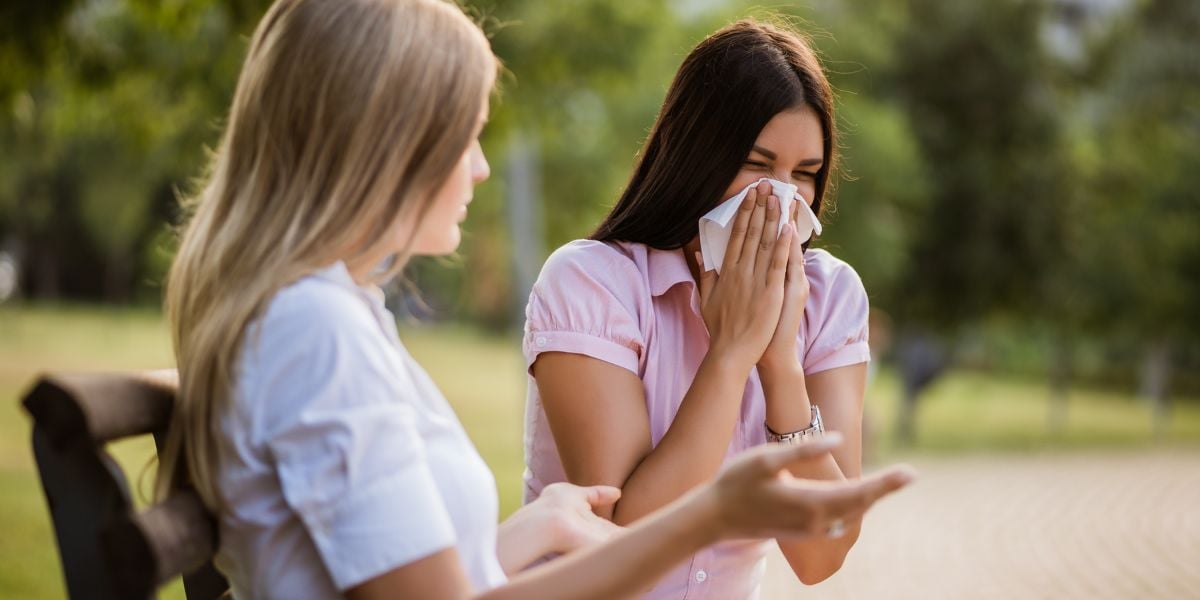Wellbeing
Hate Summertime? You May Have Summer Depression. Here’s How To Cope…
Summer depression may not be as well-known as its infamous cousin, winter blues. But they’re all part and parcel of “seasonal affective disorder”, a condition with a fitting acronym – S.A.D. So, how do you fight summer depression? Is it even possible to when you’re not a fan of the sunniest season of the year? How about supplements – can they help? Scroll down to find out how you can survive – and even thrive – during summertime.
Table of Contents
What are the signs of summer depression?
When summer’s just around the corner, you probably start dreading the onslaught of heat, humidity, and the masses of humanity seemingly coming out of the woodwork. Here’s what people with seasonal affective disorder during the summer months generally feel like:
- Feeling miserable and gloomy throughout summer
- Restlessness and difficulty concentrating
- Unable to muster the energy to go about their day
- Problems getting good quality sleep at night
- Little to no interest in activities they previously enjoyed
- Decrease in appetite, which may lead to weight loss
- General sadness and anxiety
- In extreme cases, thoughts of death and suicide
Why do people get depressed in summer and how to cope?
Summer is often depicted as the season of ultimate fun. School’s out, the weather’s warm and perfect, and the sun’s up longer, helping you improve your Vitamin D levels naturally.
But obviously, not everybody loves summertime. Here are some of the reasons behind summer depression – along with tips on how to cope!
1) It’s too hot and humid
The warmth of summer is part of its appeal. But global warming’s been creeping up in recent years. We are all witnesses to its disastrous effects. In the past month alone, thousands of people have fallen victim to record-breaking temperatures and heat waves! Admittedly, this takes the fun out of summer. After all, it’s hard to enjoy your favorite summertime activities when you can’t breathe or you’re sweating nonstop.
Moreover, if the heat persists well into the night, it can also affect your sleep quality, making you even crankier the following day. Poor sleep + hot weather may also have a pronounced effect on your mental health, which may then have a domino effect on other areas of your life.
How to cope with the heat and humidity?
First off, pay attention to the weather forecast. Check the highs and lows for the day, and stay indoors during the hottest hours. You may also want to think about doing your outdoor chores when it’s a bit cooler, i.e. during early morning, late afternoon, or nighttime.
Additionally, it’s important to stay hydrated during the summer. It’s easy to get dehydrated when you’re sweating all the time. Also, try to do more fun water activities like going to the pool or the beach, which can help cool down your body’s temperature.
Also, investing in an air conditioner may be a good idea, too. This way, you don’t have to suffer every single summer. According to Climate Central, rising temperatures and extreme weather conditions will likely be part of our future.
Lastly, if the heat’s getting to you and you’re having trouble concentrating on your summer to-do list, then consider taking the following supplements to help improve your mental state and ease your summer depression:
- Phosphatidylserine – this compound is found naturally in the brain. We use a soy-free formulation that supports memory, cognitive, and healthy brain function.
- Omega-3 – this is the perfect supplement if you don’t eat fatty fish regularly. We use the clinically recognized 3:2 EPA:DHA ratio for optimal brain, heart, eye health, and more!
- MagEnhance Magnesium Complex – we use 3 forms of magnesium that will not only help you get some quality sleep at night (great for when it’s super-hot), but also help raise your body and brain’s magnesium levels.
- Lion’s Mane – this medicinal mushroom is safe and non-toxic. Bioactive compounds in lion’s mane help stimulate nerve growth factor, which can help repair and regenerate damaged neurons.
- Seneca Nootropic – this stimulant-free nootropic stack is formulated with 18 natural nootropics, including B vitamins, amino acids, and herbs. It’s designed to help you think more clearly, stabilize your mood, and take the edge off anxiety.
2) Summer allergies
It’s pollen time! You know it’s summer when you sneeze more often than usual. It’s understandably annoying and bothersome when these seasonal allergies make themselves known. Plants, weeds, and grasses are the culprits; the kind will depend on your location.
Additionally, the warm and humid air is conducive for dust mites and mold growth in damp areas, which can set off a series of allergic reactions ranging from mild to severe!
How to deal with summer allergies?
Check the web for pollen forecasts. If you need to go outside, wear a mask for protection. Additionally, take your anti-allergy meds with you, so if you feel an attack coming up, you’re prepared. Then when you get home, change clothes right away, so you minimize the risk of these allergens floating indoors.
In addition to investing in a good air-conditioning unit, you may also want to invest in appliances with HEPA filters, such as vacuum cleaner, portable air purifier, and an HVAC system. HEPA filters can remove allergens as small as 0.3 microns in size, theoretically removing up to 99.97% of allergens!

3) Low self-esteem can cause summer depression
People tend to wear as little clothing as possible during summer. It’s literally the first line of defense against the summer heat. And the closer you get to the beach, the skimpier people’s outfits become!
Summer can therefore be a bummer for those with low self-esteem. It can make them feel bad about themselves and their perceived imperfections. For some, this means wearing clothes that show some skin (e.g. short-shorts, sleeveless and crop tops, swimwear) are off the table.
How to improve self-esteem?
Firstly, let’s get this common misconception out of the way – you don’t need a “summer body”! There’s no rule that says only people with “perfect” bodies can enjoy summer. This mindset can be dangerous to your mental, emotional, and physical health.
Secondly, it’s important to put yourself first. Everyone’s got an opinion about everything – don’t let other people’s opinions define you. If body shamers surround you, perhaps it’s best to look for new friends who will treat you better.
Lastly, getting some sun may actually be just the thing you need to boost your self-esteem. Sunlight helps with the production of the feel-good hormone called serotonin. Low levels of serotonin is associated with summer depression and S.A.D. in general.
4) Overwhelming crowds
Panic attacks tend to increase during summer. It seems like everyone’s outdoors. Everybody wants to soak up the sun. Pools and beaches are crowded. The noise, the smells, and the heat can quickly wear one down, even if you don’t have agoraphobia or fear of crowds.
How to deal with crowds?
To avoid crowds, you need to plan ahead. It might be a bit unpredictable in summer to know which places will have fewer people. Everyone’s in vacation and adventure mode, so it’s important to have alternate venues in mind.
If you cannot extricate yourself in the middle of a crowd, focus on your breathing and calmly look for a way out. Easier said than done, but it’s important to stay calm and not panic when you can’t find the exit!
5) Dreading the upcoming school year
All good things must come to an end, right? Unfortunately, summer vacation’s one of them. Whether you’re the parent or the child, a new school year means new challenges. Moving up to a higher grade or academic level may involve changing schools, meeting new classmates and teachers, tons of schoolwork, waking up extra early, studying for quizzes and exams, and more.
How to stop feeling worried about school?
Summer will inevitably end, so it’s best just to enjoy the break. Looking forward and planning ahead is the best way to overcome the dread of the upcoming school year.
Alternatively, taking a gap year may be a good idea if you really don’t want to go back to school yet. You can travel, gain work experience, learn a new language, and spend more time exploring the world around you!
How long does summer depression last?
Summer depression sucks, but the good thing about it is it doesn’t last the whole year! Generally, summer depression symptoms may begin manifesting anywhere from late spring to early summer. And affected individuals may start feeling better towards the end of summer or when the heat starts abating, which may not be until the mid-end of autumn.
Conclusion
There’s no way to skip the summer season (unless you move to the southern hemisphere and move back again when it’s summer there!). The sooner you can take proactive measures to prevent summer depression, the healthier it is for you.
Talk with family members and friends. Or seek professional help, if available. Having a support network – and the right supplements – can help you enjoy this wonderful time of year, too!




